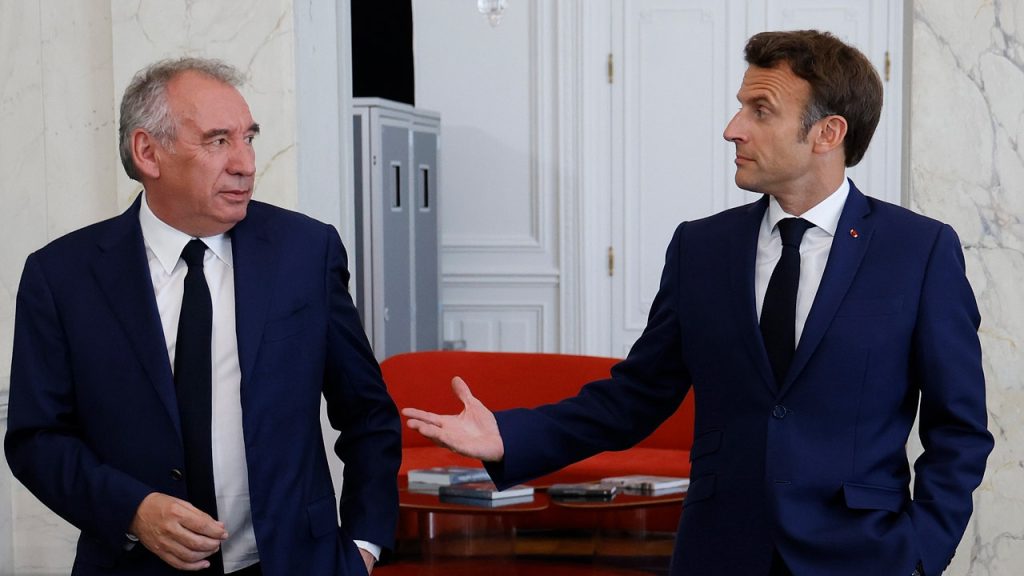Paragraph 1: The Political Upheaval and Macron’s Response
French politics experienced a significant shake-up with the ousting of Prime Minister Michel Barnier’s government through a historic no-confidence vote in the National Assembly. This parliamentary maneuver left France temporarily without a functioning government, prompting President Emmanuel Macron to take decisive action. In response to the political crisis, Macron reaffirmed his commitment to remain in office until the end of his term in 2027 and swiftly appointed François Bayrou, a seasoned centrist politician and leader of the Democratic Movement (MoDem), as the new Prime Minister. Bayrou’s appointment signaled Macron’s intent to navigate the complex political landscape by leveraging his ally’s extensive experience and build a stable government capable of navigating the challenges ahead.
Paragraph 2: Bayrou: A Seasoned Political Figure Takes the Helm
François Bayrou, 73, brings decades of political experience to the role of Prime Minister. A prominent figure in French politics, Bayrou is known for his centrist stance and has been a key ally of Macron since 2017 when he supported Macron’s first presidential bid. His leadership of the MoDem party further solidifies his position within the political spectrum. Bayrou’s appointment is seen as a strategic move by Macron to restore stability in the face of a fragmented National Assembly where no single party holds a majority. His political acumen and established relationships are expected to play a crucial role in forming a government capable of effective governance.
Paragraph 3: The Challenge of Forming a Stable Government
The absence of a parliamentary majority for Macron’s centrist alliance presents a significant challenge for Bayrou in forming a stable government. To secure the necessary support for his cabinet, Bayrou will need to cultivate alliances with moderate lawmakers from both the left and right wings of the political spectrum. This delicate balancing act requires skillful negotiation and compromise to ensure the government’s survival and ability to effectively govern. The inclusion of some conservative members in the new government is anticipated, reflecting the need for a broad base of support.
Paragraph 4: Macron’s Strategy and the Far-Right Threat
Macron’s choice of Bayrou aligns with his overarching strategy to counter the influence of the far-right, particularly Marine Le Pen’s National Rally party, which played a pivotal role in Barnier’s ousting. By forming a government with a broader base of support, Macron aims to prevent Le Pen from wielding decisive power over the government’s agenda. This approach underscores Macron’s commitment to maintaining a centrist course and preventing the far-right from gaining undue influence in French politics.
Paragraph 5: Building Alliances and Seeking Stability
Bayrou’s appointment also reflects Macron’s efforts to forge a non-aggression pact with the Socialist party. Such an agreement would commit the Socialists to refrain from supporting future no-confidence motions against the government, providing a degree of stability. This strategic alliance-building is vital for Macron’s ability to govern effectively given the fragmented parliamentary landscape. By securing the support of the Socialists, Macron can strengthen his government’s position and minimize the risk of further political upheaval.
Paragraph 6: Bayrou’s Past and Political Trajectory
Bayrou’s political career has been marked by both achievements and controversy. Prior to his current role, he served as Minister of Education from 1993 to 1997 in a conservative government and made three unsuccessful bids for the presidency in 2002, 2007, and 2012. In 2017, his appointment as Justice Minister under Macron was short-lived due to an investigation into alleged embezzlement of European Parliament funds by his party, MoDem. Although he was later cleared of these charges, the experience underscores the complexities of his political journey. Now, as Prime Minister, Bayrou faces the challenge of steering the French government through turbulent political waters and contributing to the stability of the nation.


